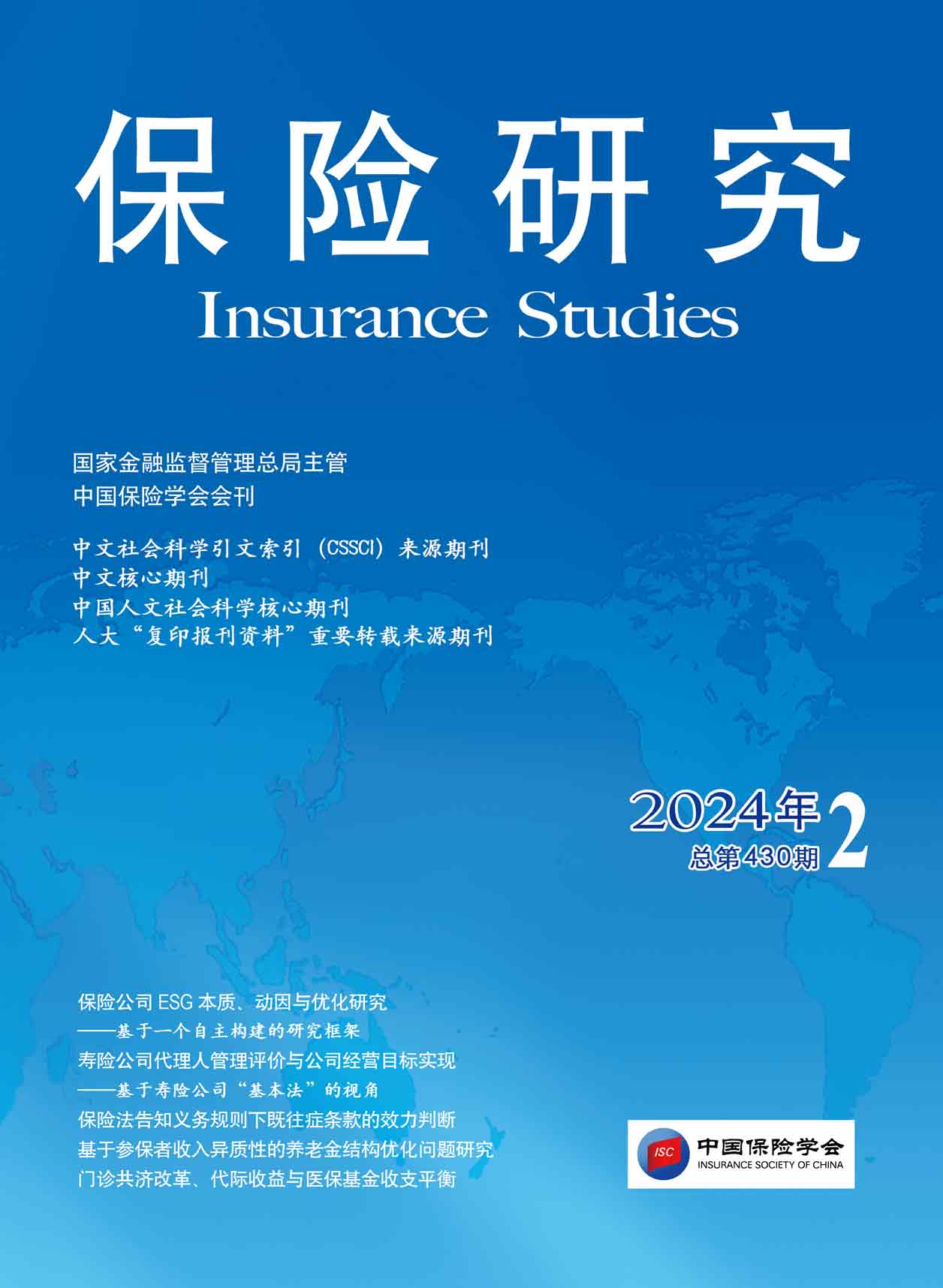
《保险研究》20240209-《门诊共济改革、代际收益与医保基金收支平衡》(郑恺、蒋云赟)
[中图分类号]F840.684[文献标识码]A[文章编号]1004-3306(2024)02-0111-17 DOI:10.13497/j.cnki.is.2024.02.009
资源价格:30积分
- 内容介绍
[摘 要]城镇职工医疗保险是我国社会保障体系的重要组成部分,且是当前唯一不需财政补贴即可正常运转的险种。但由于“板块”模式下个人账户积累了大量资金,统筹账户面临着基金支付压力,2023年起职工医保门诊共济改革全面启动。考虑到我国职工医疗保险当前统筹层次仅限于地市层级,本文首先总结了各医保统筹区所推行的门诊共济政策的基本特征,并说明改革降低了区域间的给付待遇不平等程度;然后使用成本收益分析的方法进行代际核算,将不同代际在医疗保险体系的福利水平货币化,考虑收入、健康水平及代际间的异质性,说明当前门诊共济改革方案提高了收入平均线以下人群及就诊率高于平均线人群的经济收益,改善了当前医疗保险体系再分配能力不足的问题,但现行方案也损害了出生时间更晚群体的经济收益;使用精算方法发现门诊共济改革将医保基金收不抵支的时间推后了22年,证明该项改革减轻了统筹账户面临的财政压力;最后讨论了深化个人账户改革、延迟退休及医保降费等方案的政策组合,提出我国应该继续取消退休人员个人账户、进一步提高门诊与住院支出的报销比例,降低企业医保缴费费率等政策建议。
[关键词]门诊共济;职工医保;代际收益;成本收益分析;医保收支预测
[基金项目]国家自然科学基金面上项目(72174002)、国家自然科学基金重点项目(72033001)、国家社会科学基金重大项目(21&ZD097)。
[作者简介]郑恺,北京大学经济学院博士研究生;蒋云赟(通讯作者),北京大学经济学院财政学系教授。
Outpatient Mutual Aid Reform,Intergenerational Benefit and Medical Insurance Fund Balance
ZHENG Kai,JIANG Yun-yun
Abstract:The Urban Employee Basic Medical Insurance (UE-BMI) is an important part of China′s social security system,and is the only social insurance program that can operate normally without fiscal subsidies.However,due to the accumulation of a large amount of funds in the individual account under the “plate” model,the pooling account is facing the pressure of fund shortage,therefore the UE-BMI outpatient mutual aid reform has been fully launched since 2023.Considering that the UE-BMI is currently pooled at the municipal level,this paper first summarizes the characteristics of the outpatient mutual aid policy implemented by each pooling area,and shows that the reform reduces the inequality of payment and treatment between regions.Then,the cost-benefit analysis method is used to carry out intergenerational calculation,and the benefit level of different generations in the medical insurance system is monetized.Taking heterogeneity of income,health level and different generations into account,it is indicated that the current outpatient mutual aid reform program has improved the economic benefit of people below the average income line and people whose consultation rate is higher than the average line.And,while improving the redistributive capacity of the current health insurance system,it would also hurt the benefits of those born later.By applying actuarial methods,it is found that the reform can delay the advent of the medical insurance fund insolvency by 22 years,which proves that the reform alleviates the fiscal pressure on the pooling account.Finally,the policy combination of deepening the reform on personal accounts,delaying retirement and reducing medical insurance contribution is discussed,and the policy suggestions are put forward that China should continue to cancel the personal accounts of retirees,further lift the reimbursement ratio of outpatient and hospitalization expenses,and reduce the premium rate of enterprise contributions.
Key words:outpatient mutual aid;UE-BMI;intergenerational benefit;cost-benefit analysis;forecast of medical insurance revenue and expenditure
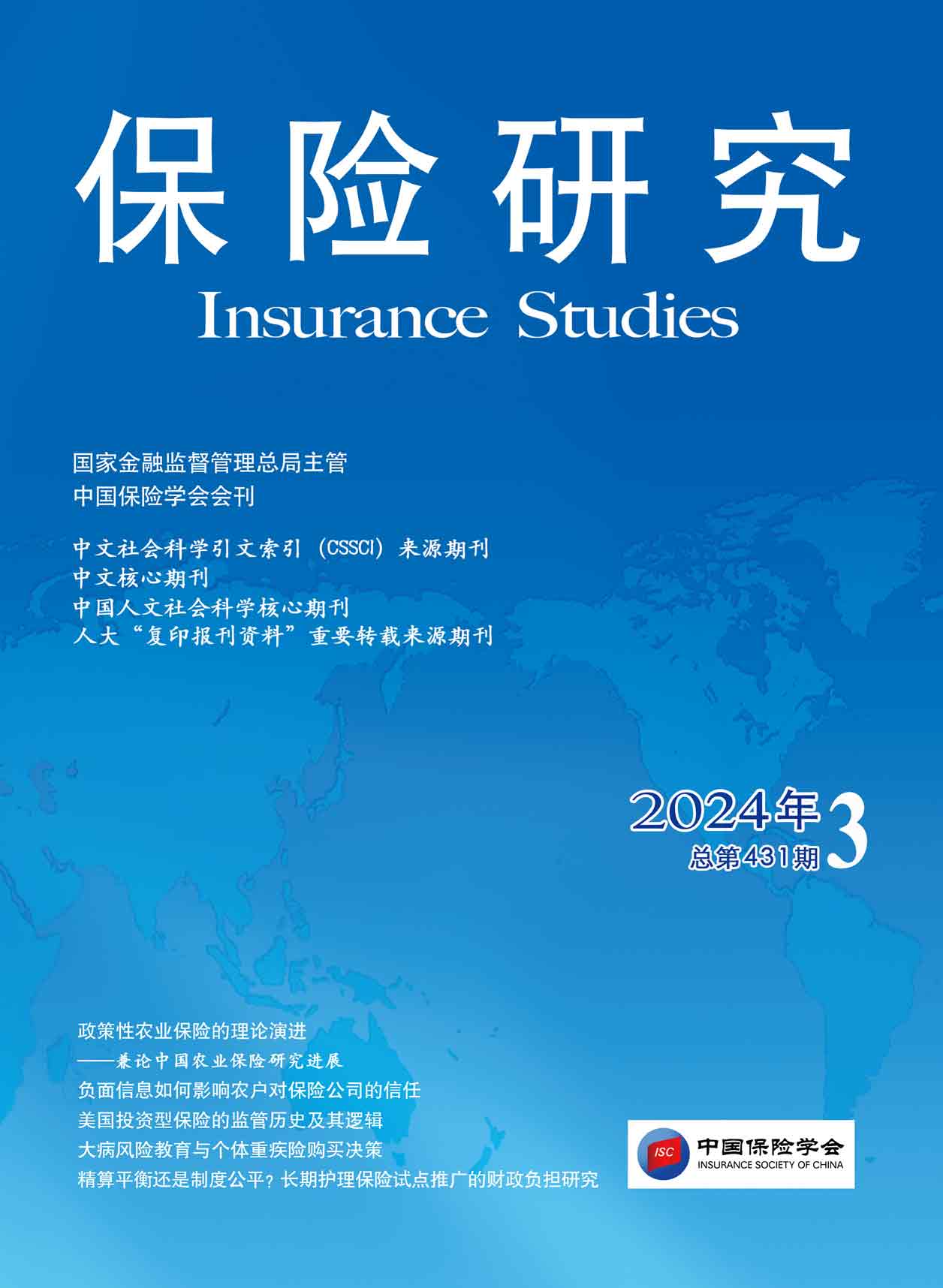
《保险研究》20240301-《政策性农业保险的理论演进——兼论中国农业保险研究进展》(易福金、燕菲儿、杨柳)
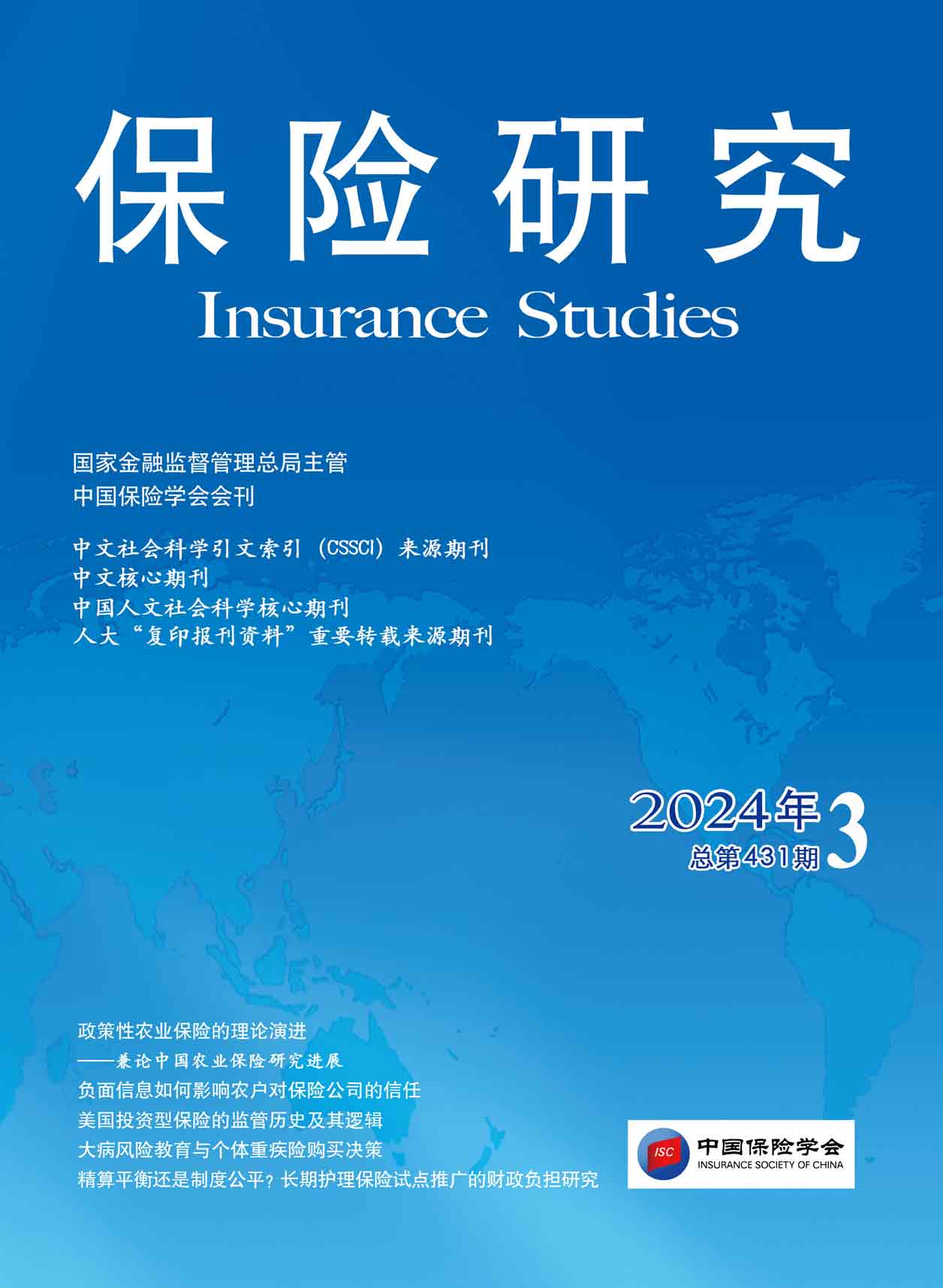
《保险研究》20240302-《负面信息如何影响农户对保险公司的信任》(张跃华、阎文溯、Calum G.Turvey)
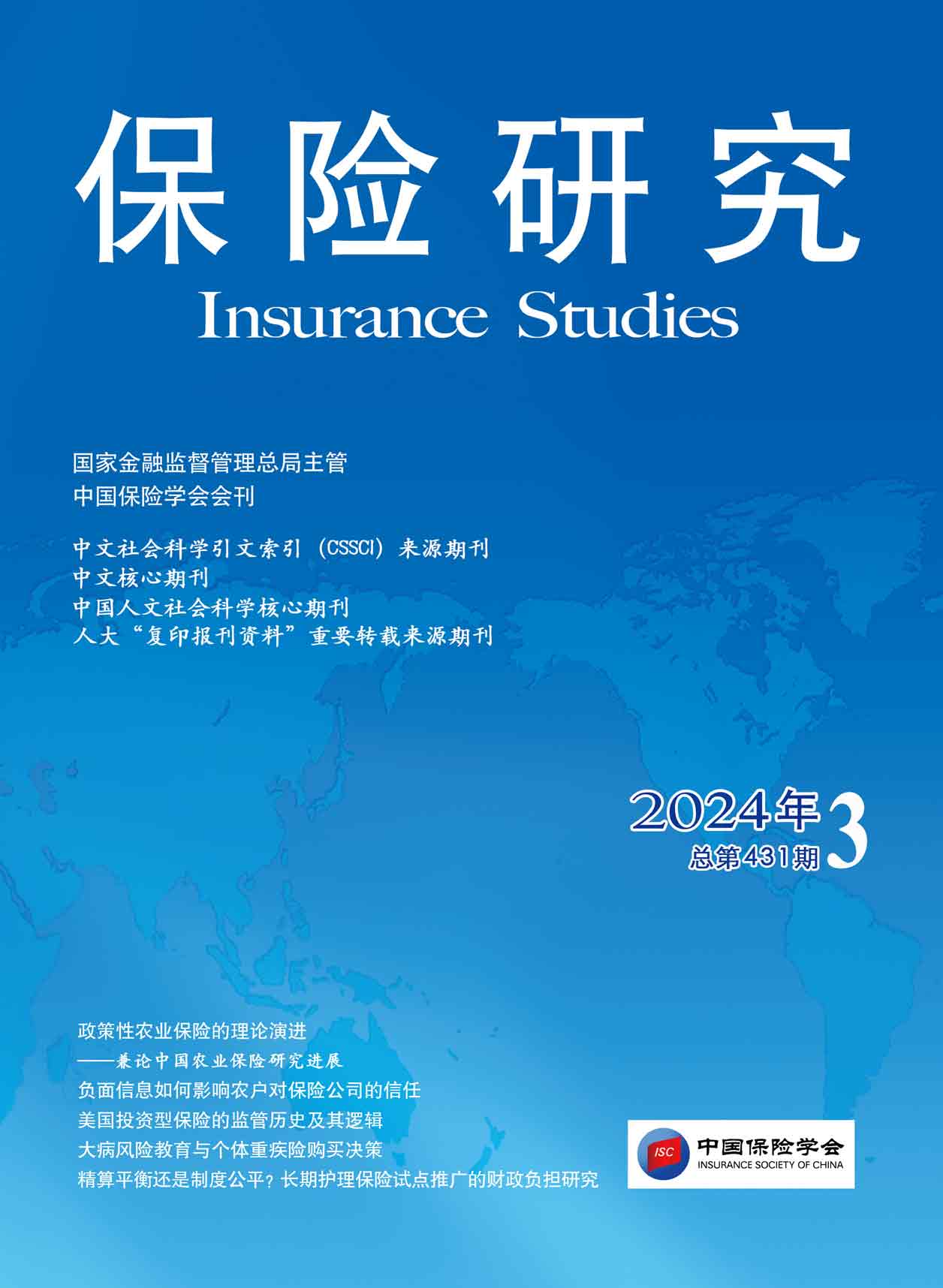
《保险研究》20240303-《专利保险试点政策与企业数字化转型》(向海凌、陈佳盈、吴非)
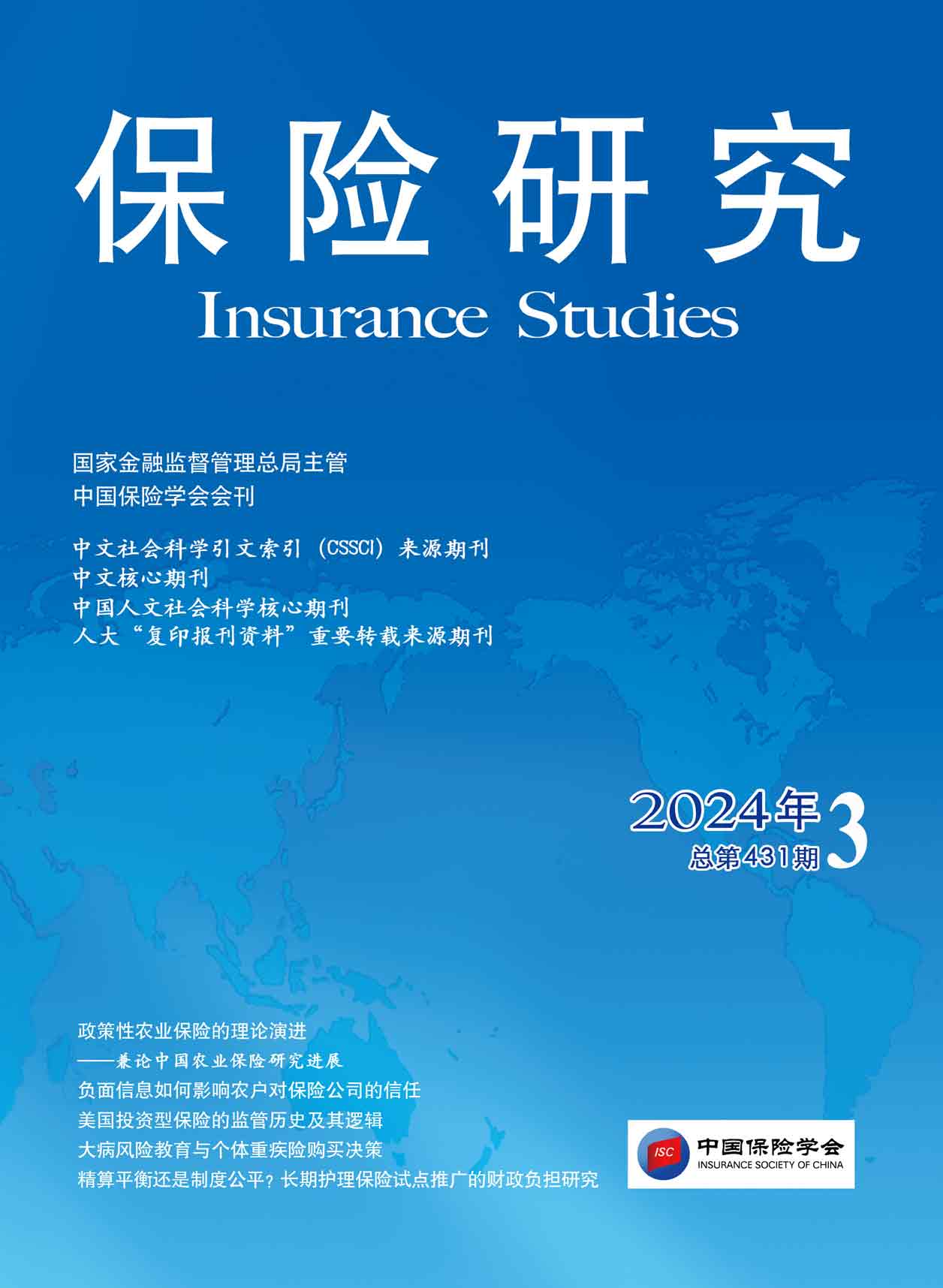
《保险研究》20240304-《美国投资型保险的监管历史及其逻辑》(李敏)
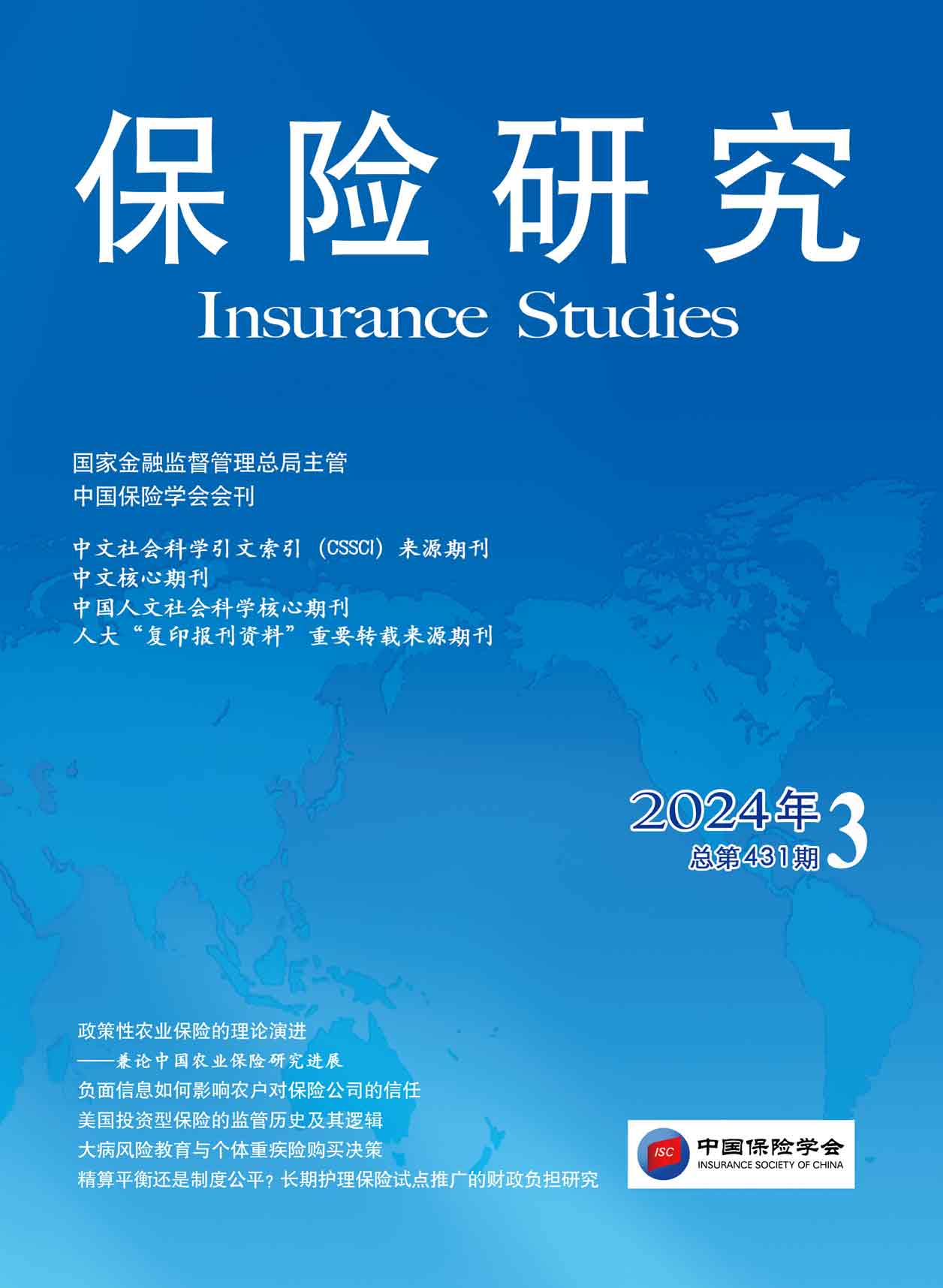
《保险研究》20240305-《大病风险教育与个体重疾险购买决策》(李天一、刘璐、王正位、沈鹏)
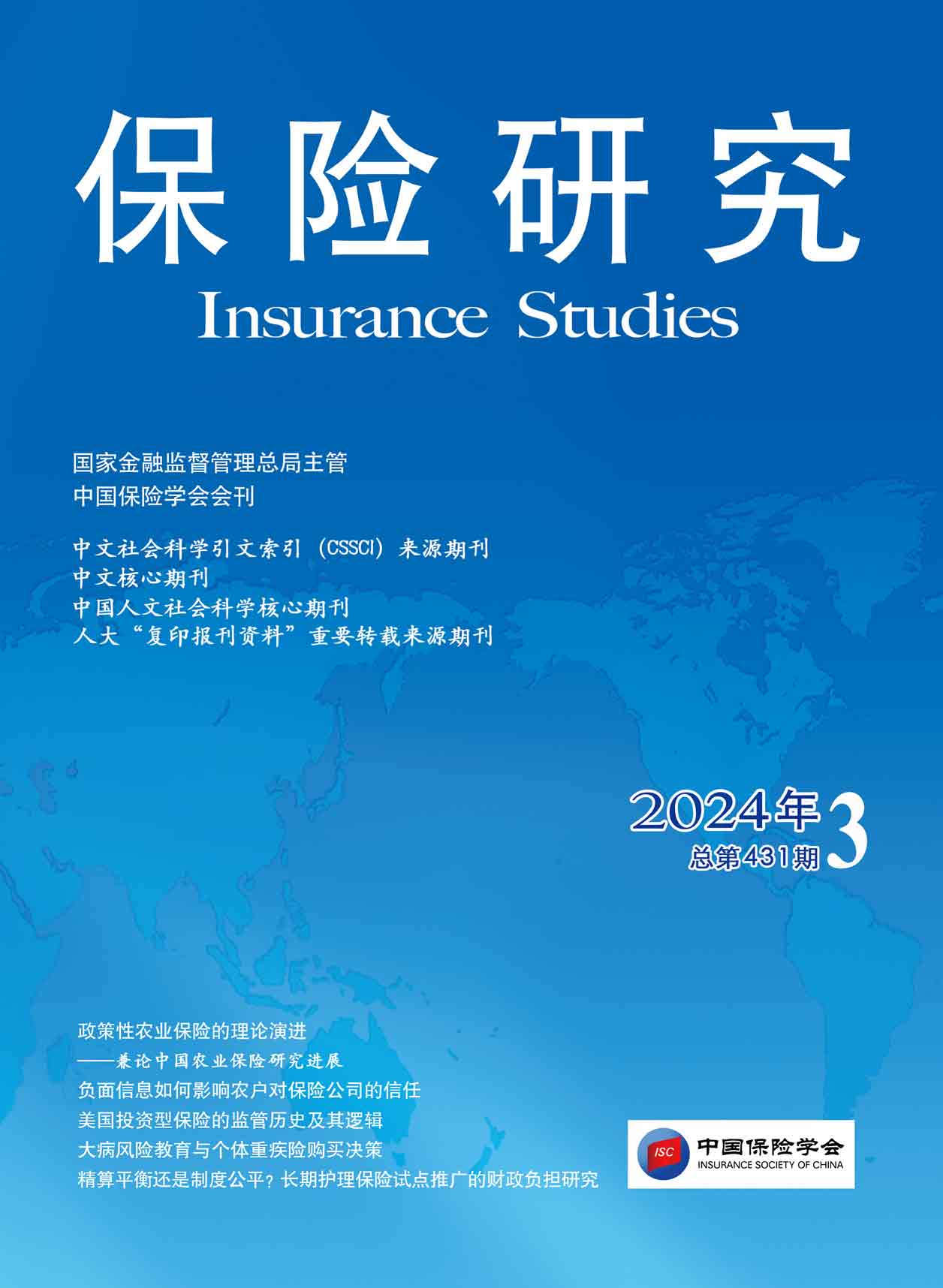
《保险研究》20240306-《挤入还是挤出:基本医疗卫生服务影响商业健康险消费效应分析》(邢晓卫、匡贤明)
